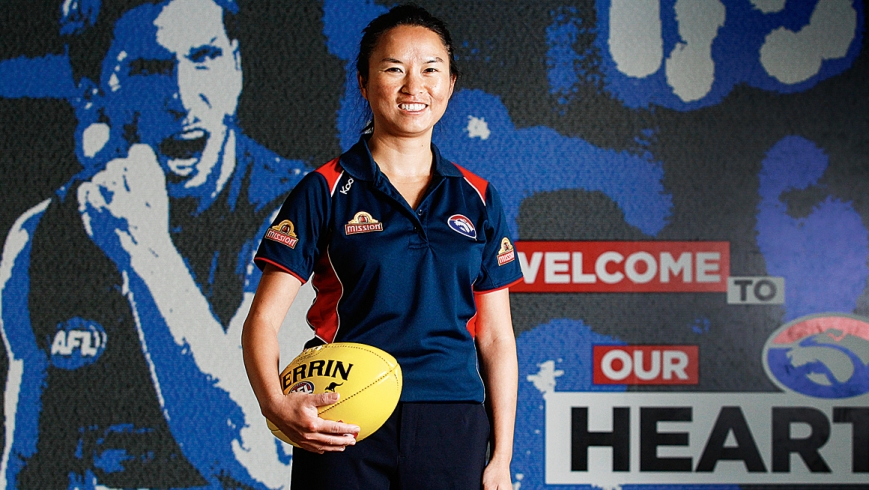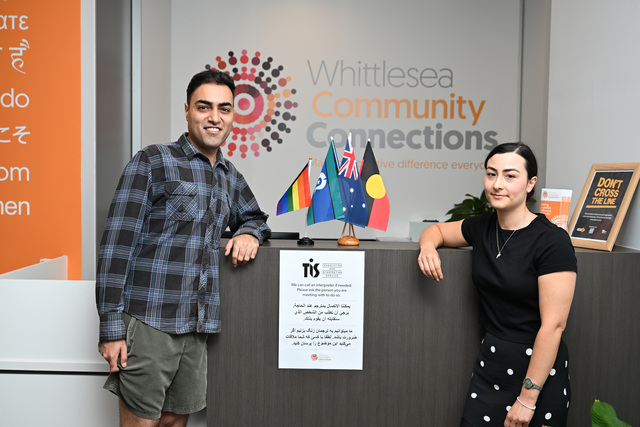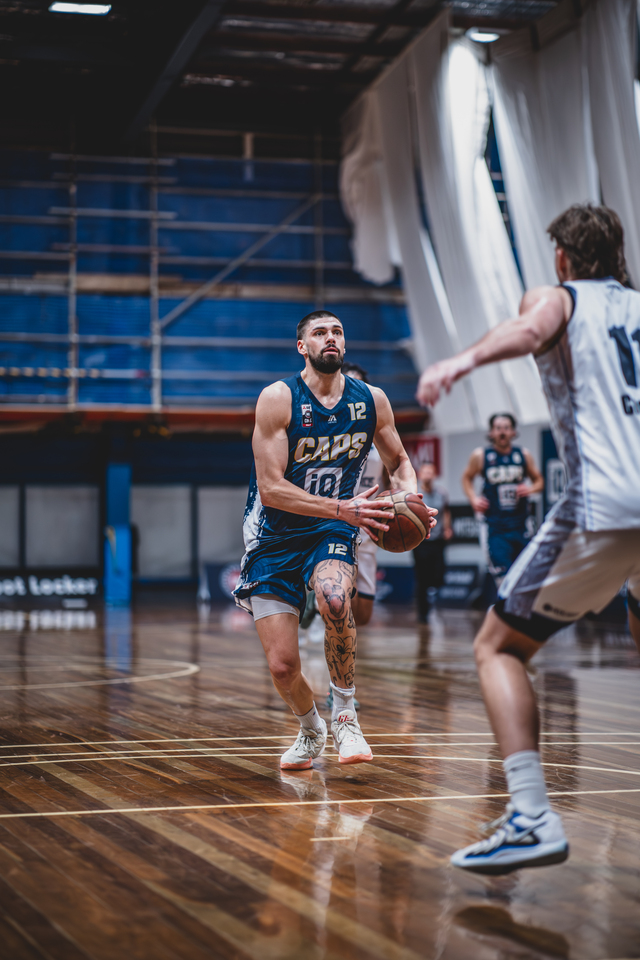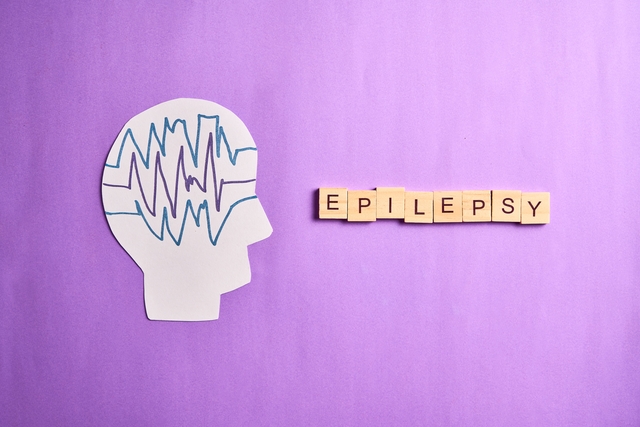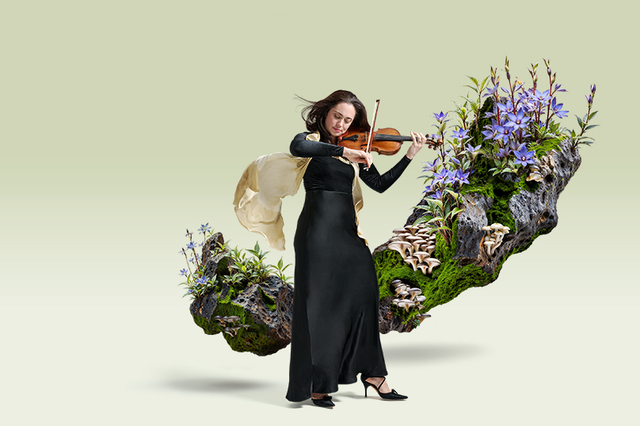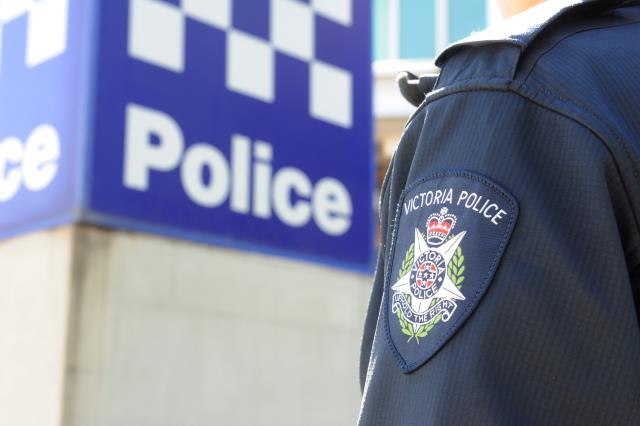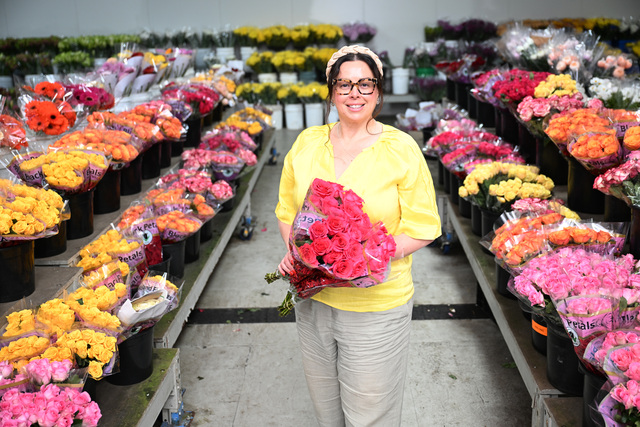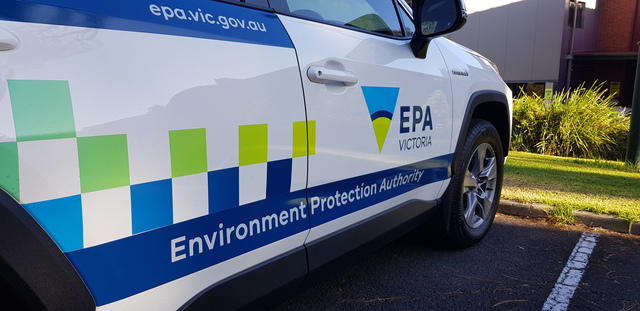‘We pride ourselves on being known as the community club of the AFL,” says Western Bulldogs community engagement manager Kiemi Lai.
Lai, along with players and staff, is preparing for the club’s community camp in Melton and Bacchus Marsh this week.
While all AFL clubs take part in community camps around Australia, for the Bulldogs the camps continue the work they’re already doing.
“We did request Melton as our camp’s location as it was part of our blitz of getting into the community last year and we wanted to continue that work,” Lai says.
“In Melton we’ve been working on building the ‘friendly schools’ program, a relationship with the Western Region Football League and involvement with Auskick clinics.”
The camp represents only a small part of the Bulldogs’ community work in Melbourne’s western suburbs. The club works in five regions – Melton, Wyndham, Brimbank, Maribyrnong and Hobsons Bay – and has connections with Sunbury and Bacchus Marsh as well.
“The club has a very broad program which is split into three different groups,” says Lai.
“We have three pillars in our community work: the ‘Fresh’, disability training and community training programs.”
Lai says she’s not sure whether there’s any other sporting club that runs a community education service like Fresh, which has “nothing to do with football”.
“It’s a Victorian Certificate of Applied Learning (VCAL) program and we have our own classrooms set up with teachers and staff,” she says of the program which allows young people who have had problems with mainstream education to complete senior secondary qualifications.
“It provides a pathway to continue education in a very unique way.”
The club’s disability program, on the other hand, focuses on using football as a medium to keep people engaged.
“We were writing various training programs when we entered into a partnership with Victoria University,” Lai says. “The Total Footy program, which is part of this, sees the participants come to Whitten Oval and do a whole term of footy learning. It gives an opportunity to be connected and part of the club – and complete a certificate.
“Anything to do with the club, they just jump on it and it keeps them engaged.”
Lai runs the community education part of the club’s programs. “We are such a multicultural community club and we cannot get away from it.
“Wyndham and Melton are such vast and growing areas with more of a range of backgrounds.
“Using sports, we target under-represented groups like refugees, new arrivals, indigenous Australians and people affected by homelessness.”
Lai believes the community education program funded by the Department of Immigration is something that makes the club’s work stand out.
“I think that we would be the only club receiving settlement grants [from the department].
“We found it has been successful using sport as a vehicle to go with this as people with limited English can still be a part of it.
“We work really closely with language centres and have formed partnerships with them.”
Werribee’s Wee Thaw moved to Australia from Thailand in 2007 and, two years later, joined the club’s New and Emerging Communities Youth Leadership Program in Hobsons Bay.
“[When] we came here, we didn’t know anything about the community we had moved into or other communities in Australia,” he recalls.
“Through my school I got involved in the youth initiative program where there were so many activities, and I learned about leadership.
“We met new friends, learned about Australia, and it was an honour to be a part of it.”
Like many participants in the programs run by the Bulldogs, Thaw, now 22, returned to the program in 2010 as a volunteer.
Lai says the club aims to keep participants involved with multiple programs. “When I started in 2006 we were doing a lot of programs and were driving the demand.
“We have no problems getting people to the activities now. We have some core programs and are able to maintain these connections.”
“Our culturally and linguistically diverse program sees us working with people who are 16 and older and with that program we see people transition from being a participant and then trying to find new ways to engage, like being a volunteer.”
It’s not only the program recipients who benefit. The Bulldogs players are involved, too.
“Bob Murphy is the ambassador for the Fresh program and Liam Picken is our multicultural ambassador,” says Lai.
“They get involved in various areas of the programs, but it’s not necessarily about the players being the centre of all the attention.
“In our Koori youth project, we have three indigenous players on the list, Brett Goodes, Koby Stevens and Liam Jones, and they’ve been really connected on a personal level with the participants.”
Key-position player Jordan Roughead says the community camps are a great way to give back to the community.
“I think all the players love it, just giving a bit of their time back to fans who support them,” says Roughead.
“It’s great to get out there and have a kick with the kids and see the smiles on their faces.
“We do community camps, country visits, school visits and a range of programs throughout the year.
“I loved doing it as a kid. It was always pretty special to have an AFL footballer come out and have a kick with you.
“It’s great to be in that position now, being able to teach kids and see them having fun.”
Roughead says the camps and visits also offer an opportunity to turn kids and other fans into lifelong supporters.
“The reaction is always positive; they’re always excited. We’re stoked to be there and they are stoked to have us there.”

